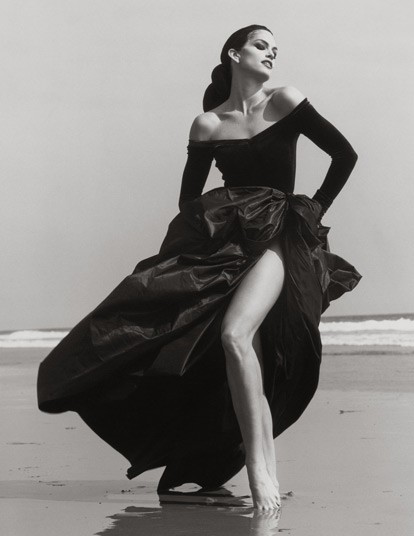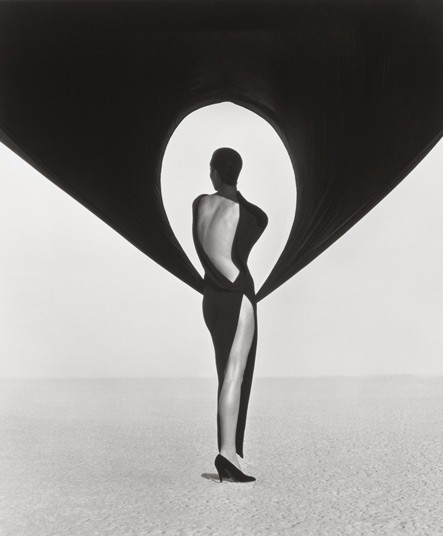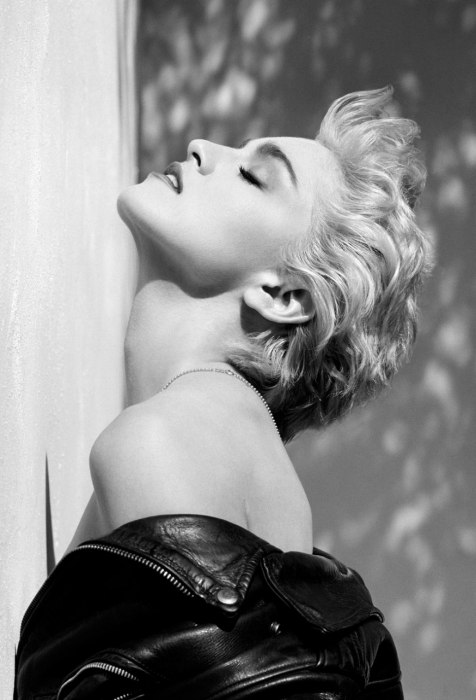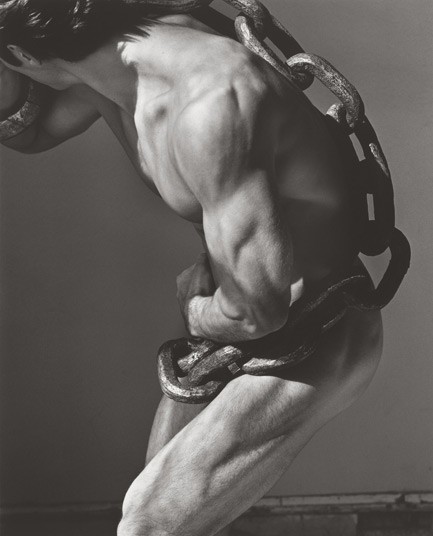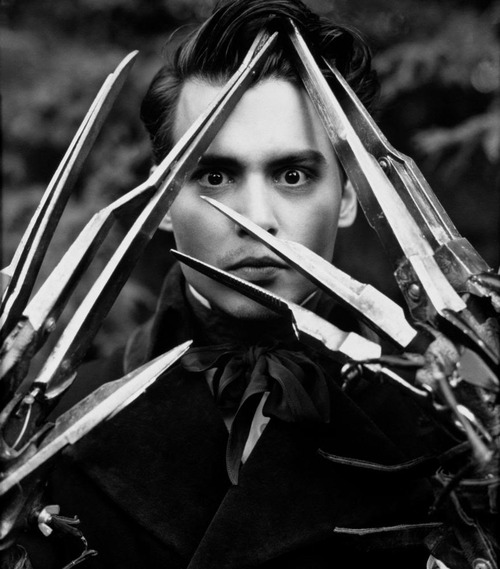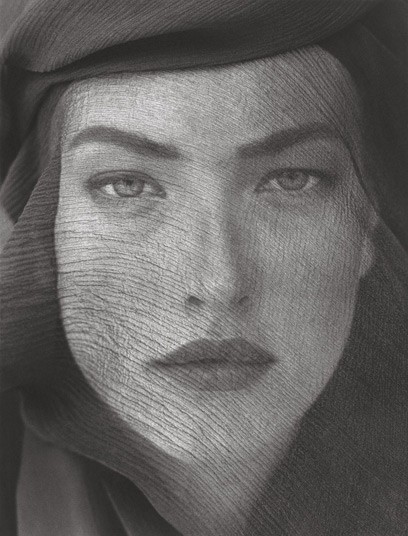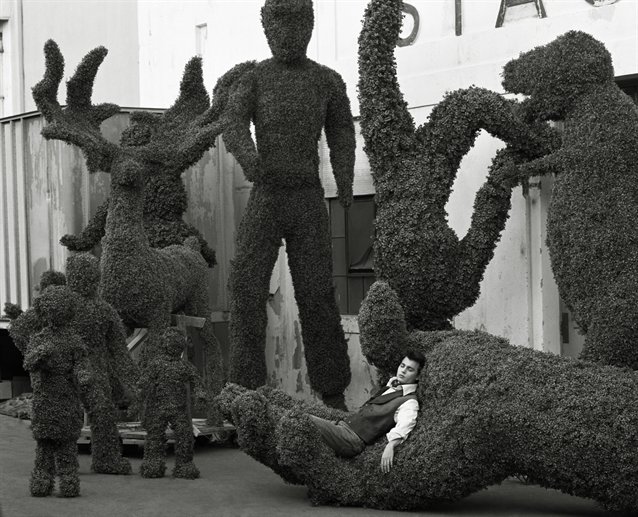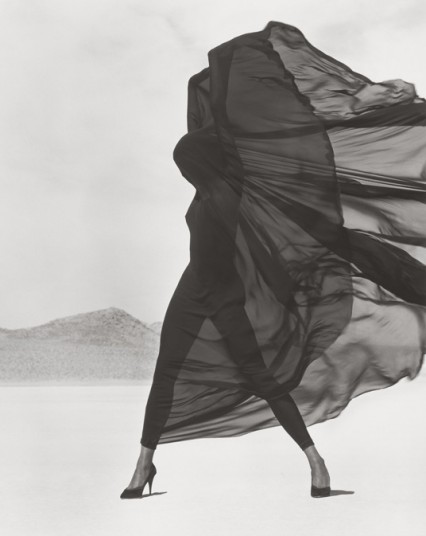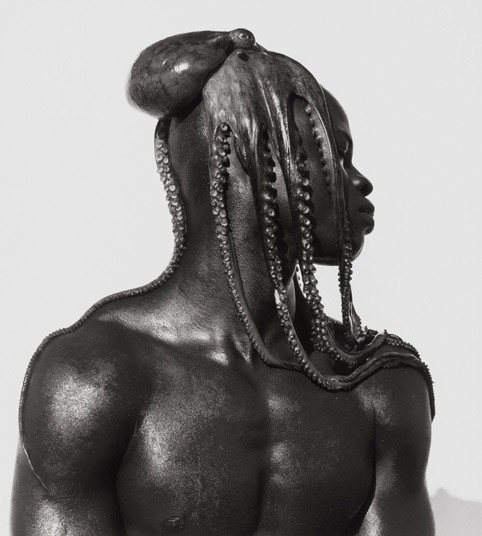The current photography exhibit “Herb Ritts: L.A. Style” at the Getty Center, Los Angeles, further canonizes California’s native son and master image-maker. Everybody attuned to contemporary American culture in the 1980’s to the aughts, has an iconic Herb Ritts image imprinted in their cultural memory, whether a coterie of kittenish super models huddled together in the nude, a beefcake young Richard Gere in an auto garage or a majestic Djimon Hounsou profiled with a live octopus as his fantastical headress. It is impossible to have passed through those decades without encountering one of Ritts’ indelible images via his work in the fashion magazines, his commercial advertising (Armani, Versace, Calvin Klein), celeb portraiture (Cindy Crawford, Johnny Depp, Richard Gere, Madonna, Jack Nicholson), gallery-worthy nudes or striking music videos (who can forget Madonna frolicking on the beach, Chris Isaak crooning “Wicked Game” to a disinterested Helena Christensen, or the dancer rotating within a giant cylinder in the California desert for a Janet Jackson video).
Now a new, gem-like show at The Getty Center, Los Angeles, puts the spotlight on Ritts’ photography and inextricable ties to both Los Angeles and its celeb denizens, ten years after his untimely death. Over 1,200 images were culled down to about 87, some iconic, some never-before-published, for this exhibit, which is on display through August 12, 2012.
Perhaps the most striking aspect of Ritts’ work is how it was both simultaneously of the moment (California’s celeb-obsessed and body-worshipping culture and the rise of the super model) and at the same time, absolutely classical and timeless. The self-taught lensman has always been associated with the sun and sea and the heroic, bronzed bodies (sometimes rising out of the sea like a Venus, other times writhing in chains like a muscular Laocoön sculpture from antiquity). Ritts worked primarily outdoors instead of in the studio, with the austere sublimity of nature as the backdrop, natural light as the illuminator, and in a further nod to nature, Ritts preferred his subjects nude whenever possible. But his nudes were far from salacious—sexy, yes, but elegant, classical, rendered almost abstract and sculptural in his signature black- and-white.
His celeb portraits, placed mostly in nature, likewise tried to strip these complex beings down to their true essence while rendering them beautiful and iconic. As exhibition curator Paul Martineau sums it up: “[Ritts] revolutionized fashion photography, modernized the nude, and transformed celebrities into icons.” Even Madonna was malleable when it came to Ritts’ artistic eye…and that’s saying A LOT.


